Kick.com backed by a multi-billion dollar company is on a mission to destroy the biggest streaming platform in the world – Twitch. And by the way, they are having a blast.
The Rise of the Gaming Streaming Industry
The gaming streaming industry has seen a significant surge in popularity over the past few years. In 2021, the most popular categories on the video streaming platform Twitch generated billions of hours of viewing time, with games occupying almost all of the top spots.
This trend was further amplified in 2020 due to the pandemic-induced lockdowns, which boosted the demand for live streaming like never before. Even though the streaming industry has somewhat normalized towards the end of 2022, streaming and gaming video content remain a core part of the gaming experience for many.
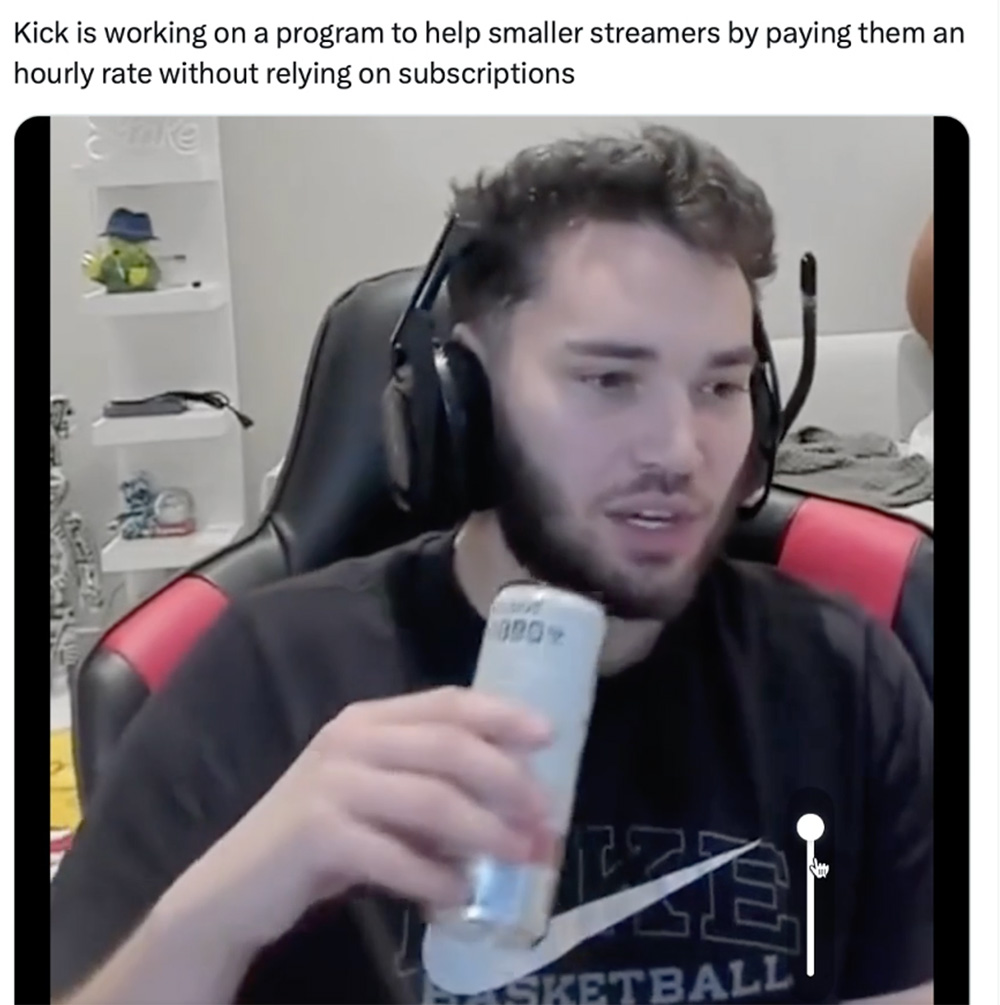
The Numbers Behind the Growth
The gaming video content (GVC) revenue worldwide was estimated at 9.3 billion USD. The number of gaming video content viewers worldwide was around 1.2 billion. Twitch, the leading platform for watching gaming video content, contributed significantly to this revenue.
What is Twitch?
Twitch is a live-streaming platform that has changed the world of gaming. It has created a community where gamers and streamers can interact, share experiences, and even monetize their passion.
The Impact of Twitch on Gaming Culture
Twitch has played a significant role in the rise of esports and the growth of gaming as a spectator sport. It has also influenced video game development, with developers often considering how their games will be received by the Twitch community.
As of 2021, Twitch is estimated to be worth around $15 billion. This value comes from its large user base, the revenue it generates from ads and subscriptions, and its impact on the gaming industry.
Twitch’s success as a live streaming platform is due to its ability to create a community through authenticity around gaming, provide monetization opportunities for streamers, and influence gaming culture. It’s no wonder that it continues to be the platform of choice for gamers and streamers worldwide.
What is Kick?
Kick.com is a gaming and live-streaming platform. It aims to provide a rewarding experience for its users and is rapidly growing its streaming community.
Controversial bans on Twitch gave Kick a good USP
The live streaming industry has seen a significant surge in popularity over the past few years, with platforms like Twitch and Kick leading the charge. However, these platforms have had their fair share of controversies, particularly when it comes to banning streamers.
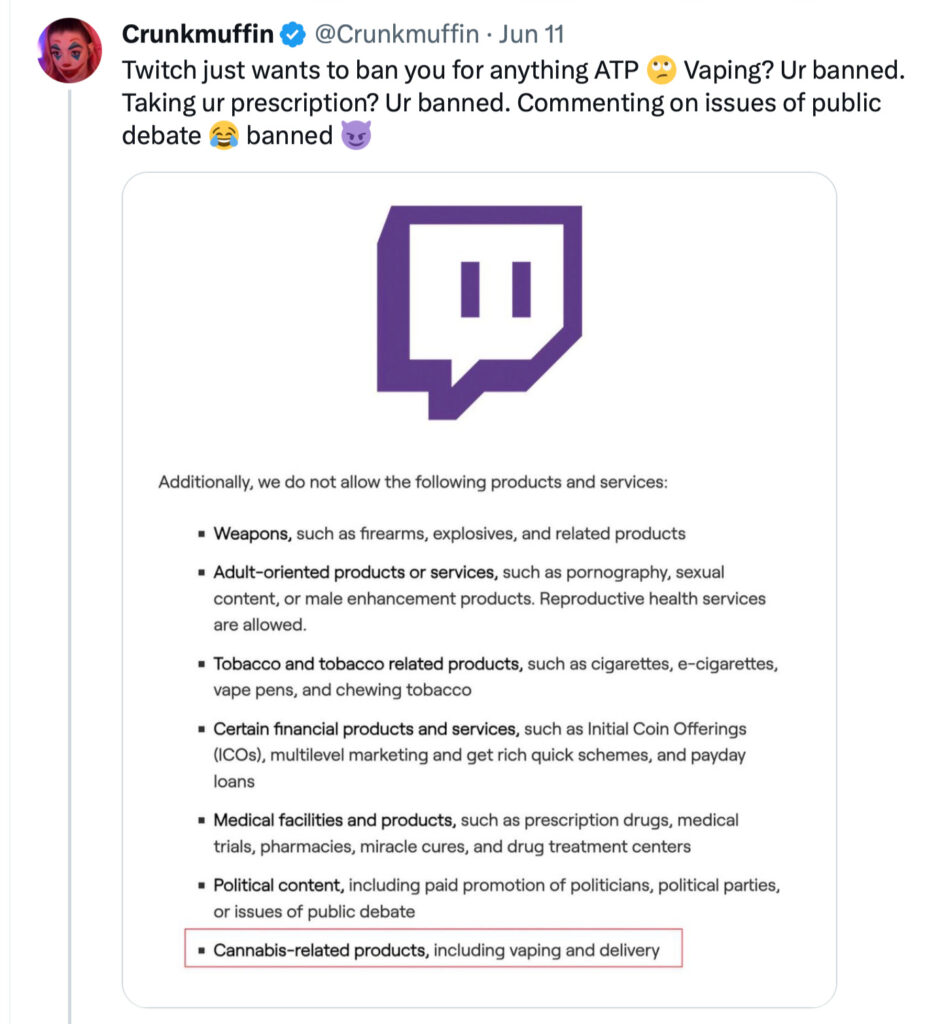
Twitch is known for frequently handing out bans, and several streamers have been banned for some fairly controversial reasons. For instance, Jeremy Wang, better known by his online handle Disguised Toast, was handed a ban for having unmoderated hateful content on his Twitch stream. However, the ban was not for something he said or did, but rather for something he observed and listened to.
Kaitlyn ‘Amouranth’ Siragusa, a well-known hot tub streamer, received a ban for her actions on an ASMR stream. While the exact reasoning behind the ban is not known, it’s believed to have to do with the perceived sexual nature of her ASMR streams.
Jenelle ‘Indiefoxx’ Dagres, another hot tub streamer, was banned six times within six months, each for violating Twitch’s rules regarding sexual content during her streams. Following her most recent ban, Indiefoxx’s Twitch partner status was revoked, and her account appears to be indefinitely banned.
Felix ‘xQc’ Lengyel, one of Twitch’s biggest streamers, was banned for about five hours after watching highlights of the 2020 Tokyo Summer Olympics on stream. This ban was due to a DMCA claim by the International Olympic Committee (IOC).
Adin Ross was banned for promoting the idealogy of Andrew Tate and recently a streamer was banned for sneakers.
Kick, on the other hand, allows you to do anything on your stream.
While Twitch has been a dominant force in the live-streaming industry, its controversial bans and policies have led to some streamers seeking alternatives. Kick, with its enticing offers and growing community, is emerging as a strong contender in the live-streaming industry. As the industry continues to evolve, it will be interesting to see how these platforms compete and adapt.
Why are Streamers leaving for Kick?
Kick is enticing Twitch streamers to switch platforms by offering to cover any breach-of-contract fees. They are also promising a payment of $16 per hour for streaming, which is determined by viewer count rather than follower numbers, with same-day payment. In addition, streamers can retain 95% of their revenue, a significant increase from Twitch’s 50% share.
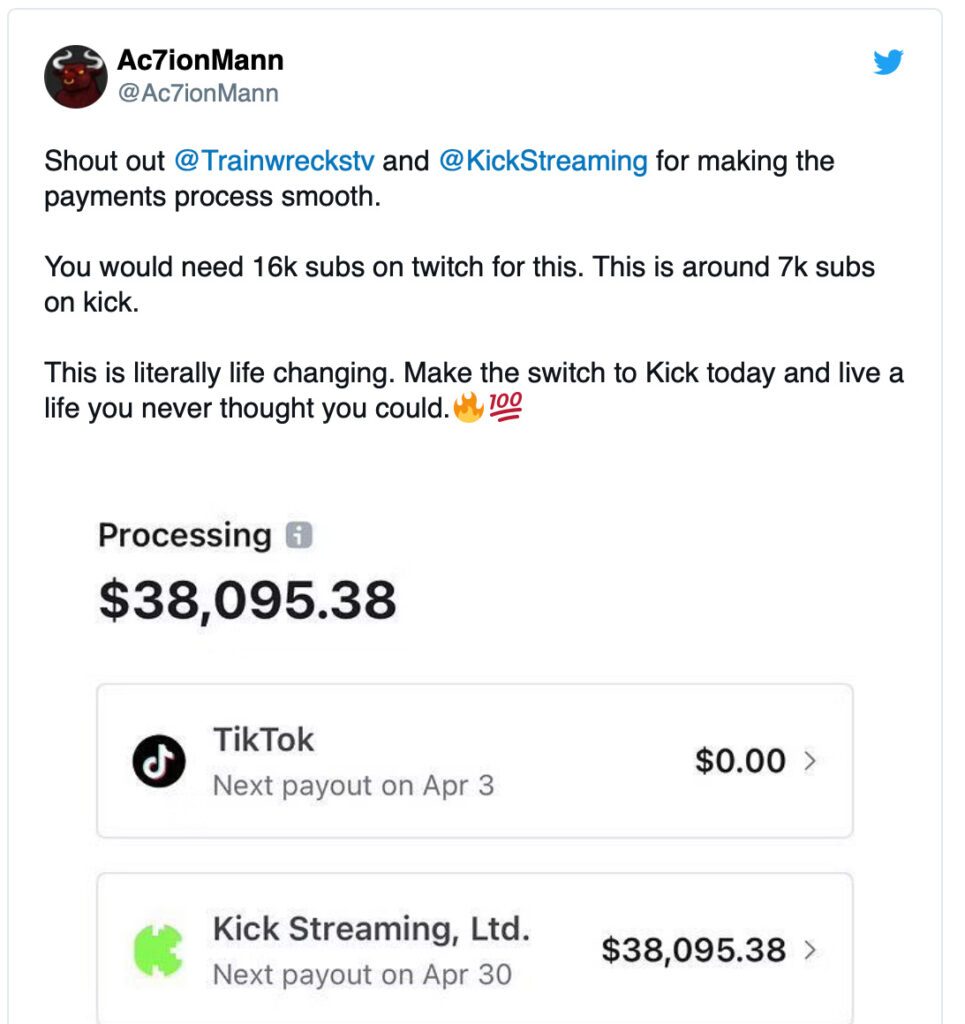
Crunk Muffin went viral crying about 50% of her money going to Twitch. She doesn’t know how to improve her streams and get better video production if she only takes 50% of her money home.

Kick’s generous offers are funded by its backing from Stake, an offshore casino that reported revenue of $13 billion in 2022. Twitch’s high-profit cut of 50% from creators is leading to its downfall, as it is the highest among all platforms.
This has prompted many creators, including Ninja, Adin Ross, Trainwreck, Ice Poseidon to switch to Kick. Twitch’s viewership has already seen a 13% drop in 2023. With Kick’s aggressive strategy, this downward trend is likely to continue.

Is Kick going to survive or will it end up like Mixer?
Mixer, a live streaming platform owned by Microsoft, was once seen as a potential competitor to the likes of Twitch, YouTube, and Facebook in the live streaming industry. Despite its technological advancements and unique features, Mixer struggled to gain a foothold in the market and was eventually shut down.
The Struggles of Mixer
From the outset, Mixer faced an uphill battle. It entered a market dominated by established platforms like Twitch and YouTube, and despite its advanced technology and unique features, it struggled to attract a significant user base. Mixer was often marketed as a more technologically advanced version of Twitch, but it failed to showcase the community it was building.
The Community Aspect
One of the key aspects that Mixxer seemed to overlook was the importance of community in a live-streaming platform. Successful platforms like Twitch not only provide a space for streamers to broadcast their content but also foster a sense of community among viewers. This community aspect was lacking in Mixer, which made it difficult for the platform to retain users and attract new ones.
The Ninja Experiment
In a bid to boost its user base, Mixer signed an exclusive streaming deal with Tyler “Ninja” Blevins, one of the most popular streamers on Twitch. However, this move proved to be a double-edged sword. While it brought some attention to Mixer, it also highlighted the platform’s lack of organic growth.
Instead of nurturing and growing its own streamers, Mixer tried to buy an audience, a strategy that ultimately failed. Nevertheless, it was run by 40-year-old Microsoft employees. How would this ever be a success?
Now Ninja jumped on board for Kick because according to him, he doesn’t make any money with Twitch.
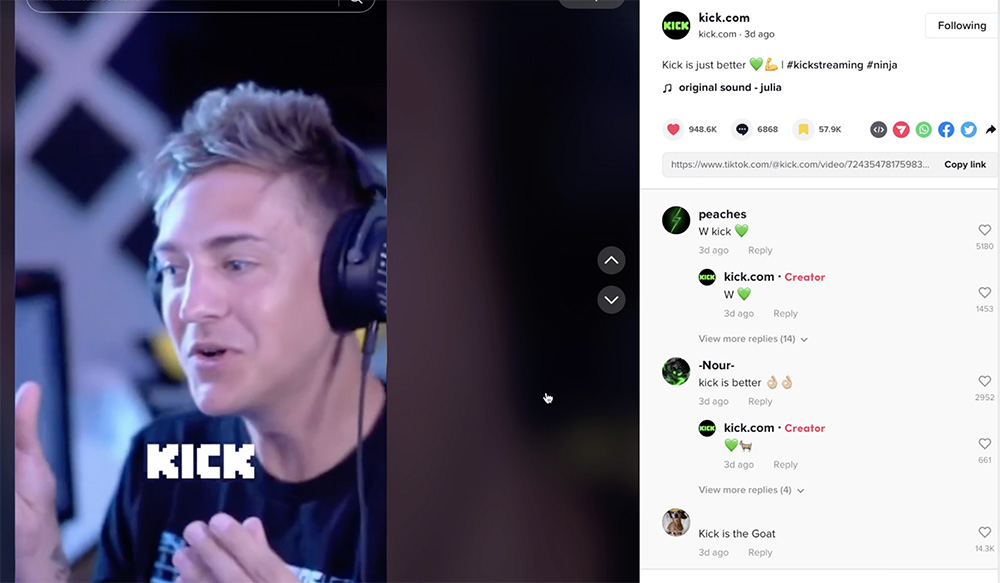
Conclusion
Mixer’s failure serves as a cautionary tale for other platforms looking to enter the live-streaming industry. It highlights the importance of community building, organic growth, and understanding the needs and wants of users.
Despite its advanced technology and unique features, Mixer’s inability to understand and cater to these aspects led to its downfall. As the live-streaming industry continues to grow and evolve, the lessons from Mixer’s failure will undoubtedly serve as valuable insights for future platforms.
Twitch currently has 140 million monthly viewers, but if it continues to lose its top streamers, its viewer count could significantly decrease. Kick is relishing this shift in the streaming landscape, often expressing its triumph over Twitch on Twitter.
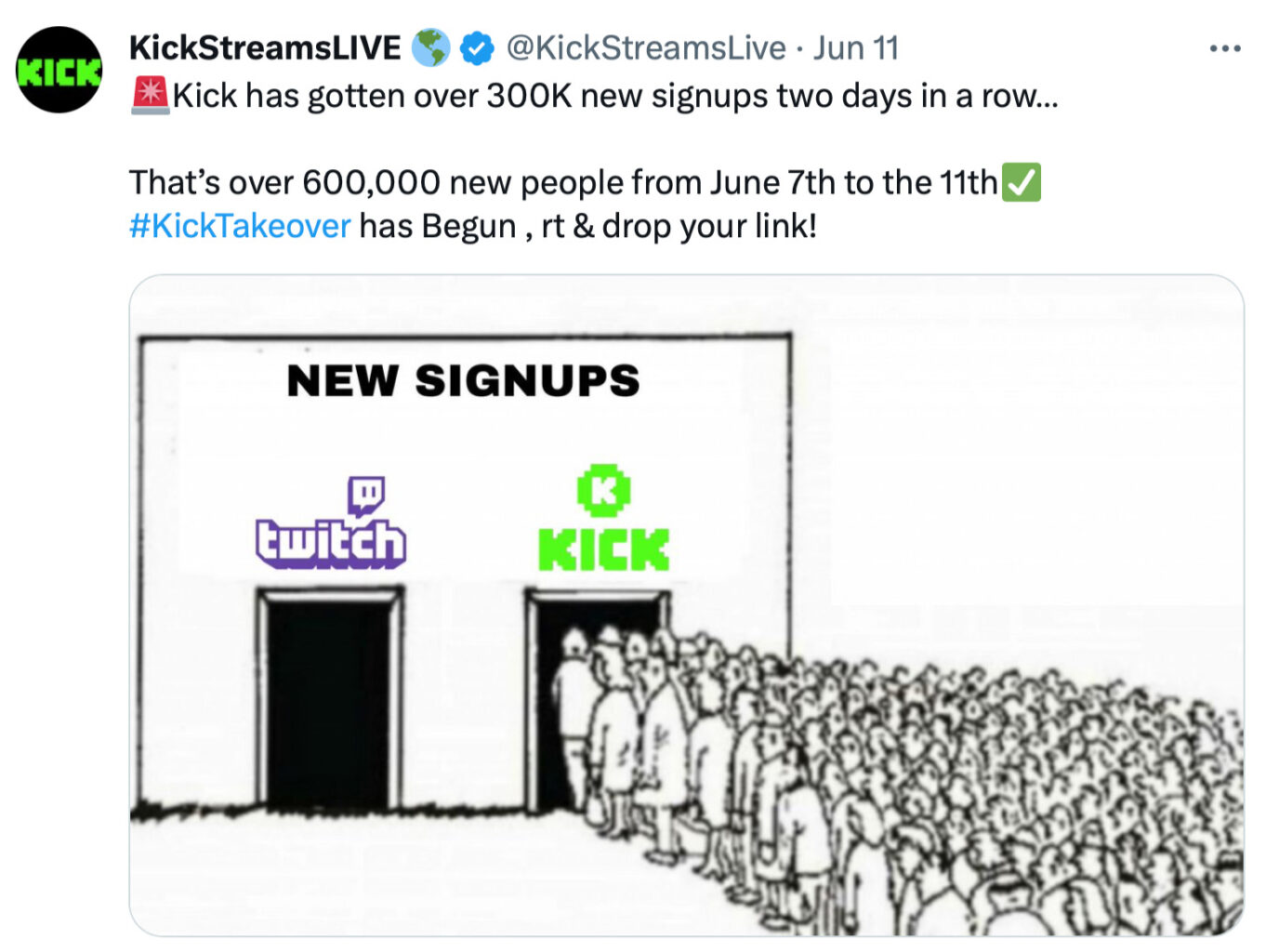
Do you want to start streaming?
Streaming is essentially like having a Youtube channel or any other social media but doing it live. Get in touch with me if you need help with knowing what to do and where to start.



Comments are closed